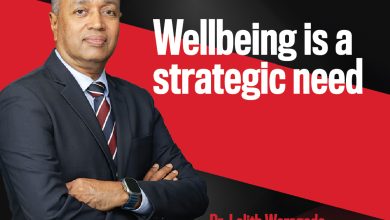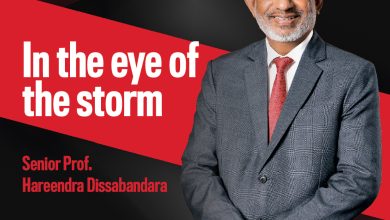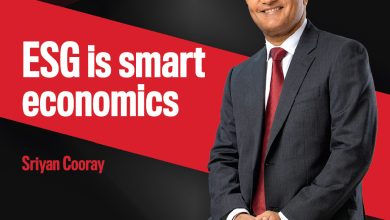ASPIRATIONAL WORKPLACE
Trust is a frontrunner
Bingumal Thewarathanthri

Effective people management is fundamentally about leadership – a leader’s ability to rally individuals towards a common goal, states Bingumal Thewarathanthri: “Key elements such as pursuing engagement and building trust act as enablers of effective people management.”
“Trust is the frontrunner, rallying people around a leader who walks the talk and leads by example. Therefore, a leader’s ability to drive a group of individuals to achieve a common goal constitutes effective people management,” he explains.
PEOPLE STRATEGIES Thewarathanthri notes that building trust within teams should always be the starting point. Transparency and leading by example are essential, alongside maintaining an effective communication strategy.
Understanding the demographics of subordinates and implementing mechanisms that support their wellbeing through an effective employee value proposition is also critical, in his view.
He asserts: “Therefore, it is critical to display empathy as your starting point when leading a group of individuals. It’s also very important to remain consistent throughout your decision-making process. As a leader, you have to be devoid of unconscious biases and maintain a strong stance against discrimination.”
FOSTERING POSITIVITY He goes on to say that it is important to clearly understand organisational goals and assess the feasibility of achieving them within set parameters. He emphasises that if resources are insufficient, one should strive to find them and align strategies accordingly.
“I only have Plan A; Plan B is more of a theoretical crisis management or business continuity planning tool. My role as a leader is to always focus on achieving Plan A. Self-belief and a positive mindset are critical to execute and achieve this goal,” Thewarathanthri adds, drawing on his own experience.
In terms of productivity, he notes that it is important to make data driven decisions.
However, Thewarathanthri also reminds us that along this journey of achieving goals, “it’s very important to celebrate small wins since greatness isn’t achieved overnight. This will help foster and strengthen a positive mindset, and eliminate any doubts.”
FAIRNESS AND EQUITY It is critical to avoid preconceived notions about people and their skills on the basis of assumptions, Thewarathanthri stresses.
He adds that maintaining an open mindset and viewing team members with fresh eyes while providing space for change is essential.
Thewarathanthri elaborates: “Test the abilities of team members without rigidity as it is important to provide opportunities for individuals to utilise their skills and talent. Once again, trust plays a major role, and I strongly believe that if a leader can work and rely on a stranger to utilise his or her abilities to do something spectacular, this will lead to many successes.”
RETAINING TALENT Touching on a critical issue the country is currently facing, he views the brain drain from a different perspective.
In the context of an international organisation, he envisages and encourages individuals to seize opportunities overseas to gain knowledge and exposure by working in different group locations, and return to their home country.
“This should be seen as a people development initiative, not a brain drain. If individuals leave the country permanently however, it is critical for organisations to create an environment where employees can grow and thrive here in Sri Lanka,” he recommends.
However, he notes that business leaders and policy makers play a crucial role in fulfilling this objective, adding that if the demand for an individual’s expertise is lacking in the country, their decision to leave may be unavoidable.
Thewarathanthri concludes: “My advice to all Sri Lankans who plan to work overseas is to gain experience and come back home. Remember that the grass is not always greener on the other side. Therefore, I would ask such individuals to think twice before making a permanent decision about their future.”





